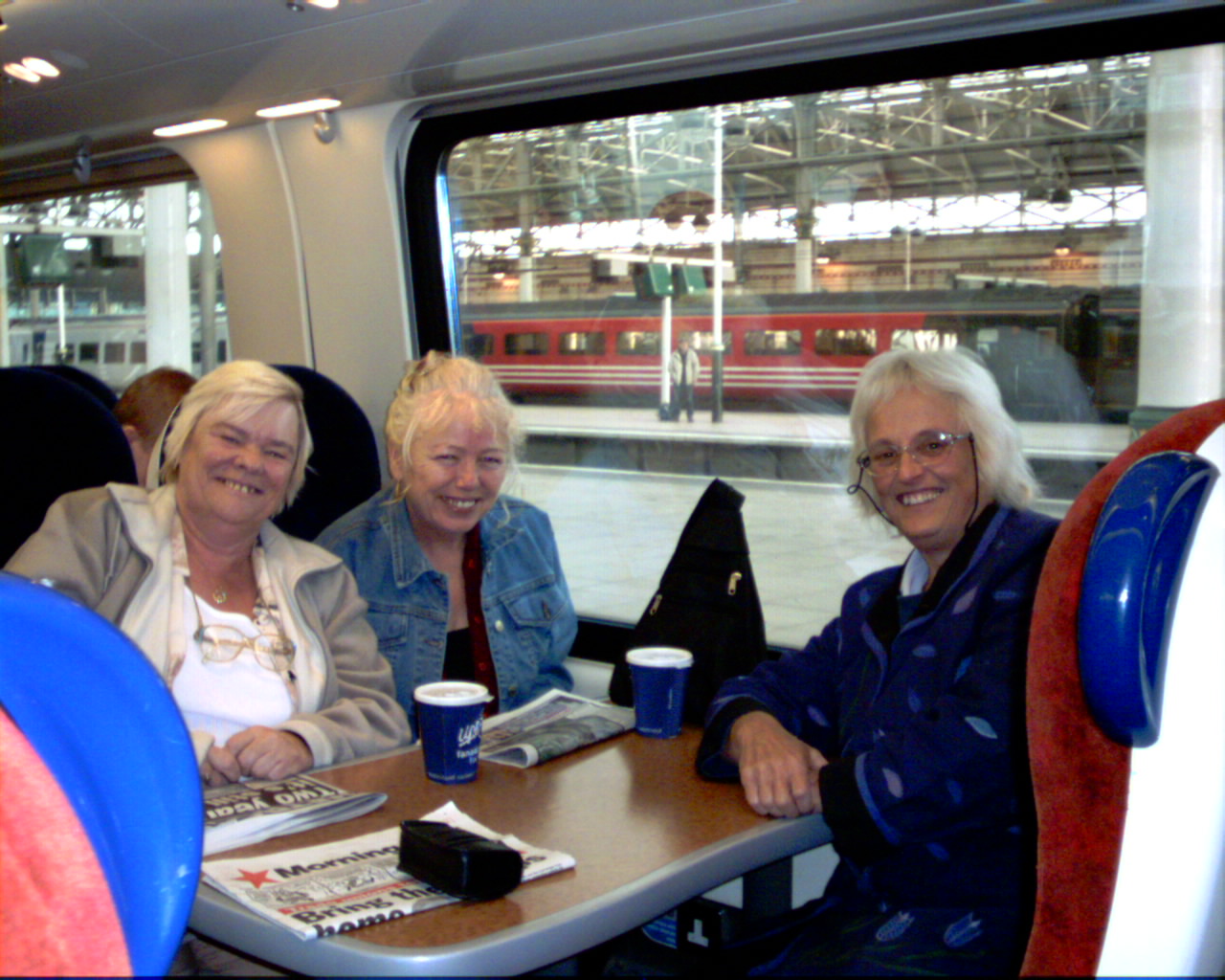Irene and Angela tell
professionals about real poverty

by Ava Soe
This article appeared in the Middleton
& North Manchester
Guardian
1/1/04
Reproduced with permission.
Two community activists have helped to change
the professional view of
"Poverty", by relating their personal
experiences to delegates at a
conference on Critical and Community Psychology.
Irene Edge and Angela Stewart were invited
to prepare papers and speak at
the conference, held in Birmingham, by
Professor Carolyn Kagan, who specialises
in community psychology at Manchester
Metropolitan University.
She asked them to address delegates on
what the state of poverty really
means for people living in it.
Irene explained that she believes professionals,
such as doctors, psychologists
and social workers, should spend time
living in the deprived communities from
where their subjects, "service users"
or "clients" will come.
Without the experience of seeing how people
live and what problems they encounter,
Irene said she feels there is no way they
can appreciate the difficulties and complexities
facing these communities each day.
She explained how poverty can go hand-in-hand
with an ignorance of an
individual's basic rights and a lack of
understanding of how to go about
getting the help and support needed to
deal with problems.
One example she gave her audience was
the infamous episode of social workers
accusing Langley parents of involvement
with so-called "Satanic Abuse".
Irene explained her involvement in the
long campaign to get children who
had been removed from their homes and
families returned. She related the
draconian measures which were used to
keep the children and their parents
separated. She said it was her belief
that to this day the families
involved have never received an apology
for what happened to them.
Irene says this taught her one important
lesson - that professionals rarely
acknowledge their faults and failings,
and never admit they get things wrong.
Angela related accounts similar to Irene's,
but was able to draw on
personal and bitter experience to illustrate
how "professionals" can block
or "stonewall" people in the community,
making them feel impotent, angry
or even desperate. She herself had been
trying in vain to get help in
dealing with an intolerable problem, caused
by a neighbour with a mental
health condition.
But although "professionals" knew chapter
and verse about the case,
they had never passed the information
on to others who
could have dealt with it. It eventually
took direct action on Angela's
part - which led to the threat of criminal
prosecution - to get the
authorities to act.
Professor Kagan said: "These stories illustrate
that some of the difficulties
and sources of oppression for people are
created by the very institutions
that are supposed to support people in
moving beyond poverty."
Professor Kagan went on to suggest that
it therefore
follows that people living in poverty
in the UK are at risk of oppression
and suppression by "professionals".
She suggests that "professionals" should
be undertaking a process
of working alongside people and publicly
witnessing their struggles - a
process she terms "accompaniment" - adding:
"Drawing on the experiences
of these two women suggests that community
psychologists might learn
from the fields of human rights and social
development to develop this
practice of 'accompaniment' ".
Back
to community psycholgy UK website